#Mental Health Care
Text
something that people don’t tell you about depression, anxiety, trauma etc is that recovery is not this beautiful healing journey where you figure out the secret to happiness and a clear head and you just come out a different person. it’s hard. it’s really fucking hard and you have to work, probably harder than you even were working before while your mental illnesses stayed dormant.
and that’s what makes me so angry about people who misunderstand disorders and their subsequent treatment. getting help is not easy. you may think that all someone needs to do is wave a magic wand and stop being the way that they are but “getting help” often means signing yourself up for regular therapy, trying out medications, trying out different forms of therapy, processing complex trauma and emotions, reconfiguring your life, challenging yourself every single day to do things you couldn’t before. it’s fucking hard!!
and to everyone out there, like me, who is going through this process - i see you and hear you and i know that we’re going to get through it. and i hate the “you’re so strong” thing but holy shit, we are strong. i know how much effort and work it takes. it’s more than just “drink water” and “go on a walk.” it’s often about rewiring your entire brain.
#mental health care#mental health#mental illness#actually autistic#actually mentally ill#actually adhd#mental health support#positive mental health#emotional validation#phobia#it will be okay#it will get better#i love you#from one mentally ill bitch to another
1K notes
·
View notes
Text
Signs to tell if the person in your inbox, asking you to reblog a post with a link asking people to donate money for their sick pet or kid, is a scam
Before we start, a disclaimer that this is NOT a solid confirmation that this person must be a scammer. The intention of this is for you to be wary and always check before donating or rebloging this type of post.
Without further ado and from firsthand experience, here are the red flags:
The person in your inbox asking you to reblog a post with their donation link will always ask you NOT to publish the ask they sent you (but to only reblog their post), and their reasoning would always be something along the line of “I don’t want people to think I pressured you into doing it🥺”
But if you go to the person’s profile with their post asking for donation, 100% of the time, you’ll find that the account has only just been created days ago. — How can you tell this? Easy. You can literally scroll down to the first ever post of their blog in less than 10 seconds.
The thing these scammers have in common is that they will create a new blog and they WILL reblog some general posts, such as fandom posts, to make their blogs look legit. They will have legit profile pictures so they don’t look like bots. But it will always be a newly created blog with several reblogs (mostly about fandoms, because they know rebloging fandom posts will make them look more legit than if they were to reblog some suggestive photos of some women, since the latter will make them look like p0rn bots), and the only original post they made is that post asking for donation.
Move on to the information they provided about their sick pet or kid. They will provide thorough and detailed information to make it look legit. But the thing is that they could just take that from google or steal that information from someone who actually needed the donation. There is never a way to tell if your money will go directly to help save the pet or the kid. My advice is to google the patient’s name and see how old the case is, if the case of this patient with this name and this information has been used to ask for donation by other people before, etc.
The photo of the patient they gave can also help you determine if it’s legit. Save that photo and then use google image search to see if it’s an original photo or if it’s a stolen one that has been used before.
Bonus: the thing these scammers can’t do is provide updates about how the patient’s doing. So it’s only just one post with the link asking you for your money. If it is legit, you should be able to see consistent updates of how this patient is doing or if there’s any change, etc. (I’m not saying it’s a requirement for those whose loved one is in critical care to post updates on social media all the time, I’m simply pointing out that scammers tend to fail to provide any update because they can’t.)
I’ll always encourage donating and helping spread the posts of those who actually are in need, though it’s just so unfortunate that, while there are people who are genuinely struggling, there are a lot of scammers out there looking for an opportunity to take advantage of people’s kindness and using sick pet or kid as a way to scam people and making it more difficult for people who really need help to be taken seriously.
Last but not least, fuck those scammers. Stay safe y’all.
#important#psa#important psa#b00st#signal b00st#signal boost#useful information#useful tips#life tips#healthcare#mental health#mental health awareness#self care#self love#tumblr#mental health care#positivity#life lessons#life coaching#life hacks
169 notes
·
View notes
Text
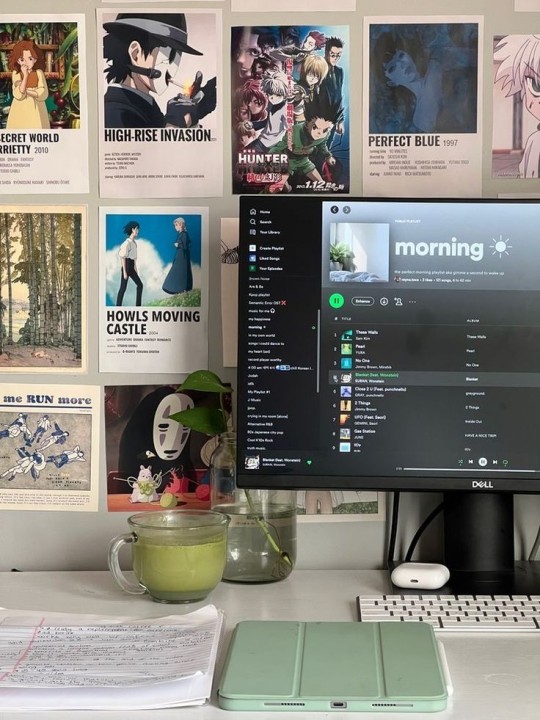



Self-care isn't selfish; it's necessary. Take the time to prioritize your well-being.
#studyblr#study blog#studyspo#study motivation#study aesthetic#study tips#studyblr community#student life#study hard#studystudystudy#safe space#studyspiration#study break#student#student core#100 days of productivity#books and reading#bookworm#source: pinterest#bookworn#positive mental attitude#mental health care#study space#studycore#light aesthetic#studio ghibli#study life
144 notes
·
View notes
Note
Therapy, and especially psychiatry, are bourgeoisie institutions. You should quit your job, bestie.
I’m not denying the bourgeois roots of both therapy and psychiatry, however your statement is shortsighted. Myself and many other therapists (I won’t speak for psychiatrists as I am not one) put a lot of effort into decolonizing and deconstructing the more oppressive and harmful roots of our field. I work in a rural community clinic with folks primarily on Medicaid and Medicare who otherwise would not have access to mental healthcare. The waitlist for our clinic is in the hundreds. There’s a huge need for help, and I plan to be a part of giving it. My theoretical orientation includes both feminist and leftist therapy and I work hard to provide the care I would want myself as a queer, leftist woman. If therapy feels too bourgeois for you still, that’s okay. You can either search for a new therapist who fits your needs better or not go at all. I feel secure and fulfilled in the help I provide to others, bestie.
#leftist#leftist therapist#leftblr#feminist therapy#leftist feminist#counseling#therapy#therapist#ask#anon#communist#socialist#communism#socialism#anti capitalist#anti capitalism#leftist politics#mental health care#mental health matters#counselor#therapy is a human right
135 notes
·
View notes
Text
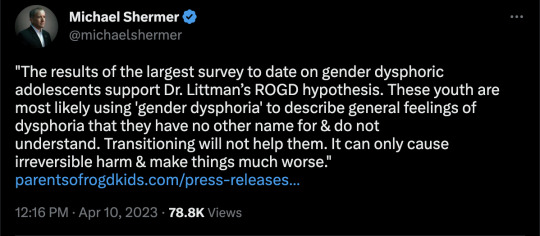
Published: Mar 30, 2023
For over a decade, the Gender Affirmative Model has been the standard of care for gender dysphoric youth across the West. Yet, despite its widespread and long-standing use, good evidence to support it remains elusive. Maybe that’s because there isn’t any.
A new paper reports on results from a survey of 1,655 parents of children who developed gender dysphoria during adolescence or soon after. American Academy of Pediatrics guidelines recommend affirming these kids in their new gender, and supporting them along the path to social, medical (hormonal), and surgical transition.
The results of this survey provide strong support for Dr. Littman’s Rapid-Onset Gender Dysphoria (ROGD) hypothesis, which suggests that gender dysphoria in this group may resolve with time and good psychological and social support, if needed.
Key Findings
Key findings of particular concern are that these children tend to have emotional problems that predate their gender-related issues by nearly four years. Furthermore, children with mental health issues were more likely than those without to have taken steps to transition. Children who were referred to a gender specialist were also more likely to have taken steps to transition. Parents reported feeling pressured by these specialists to transition their child. And parents reported a decline in their child’s mental health and social functioning after transition.
History of Gender Dysphoria and Standards of Care
About 15 years ago, Western countries began experiencing an exponential rise in adolescents and young adults suddenly developing gender dysphoria and being referred to gender clinics for treatment. Around the same time, a new philosophy on transgenderism began to take root: Just as there is nothing wrong with being attracted to the same sex, there was nothing wrong with identifying with a gender that did not match your biological sex. In other words, being transgender is perfectly normal. It is not a mental illness. If a trans person does have any mental health issues, it can be attributed to the extreme distress of having to live in a body that does not feel right (gender dysphoria), and the stress of living in a judgmental, transphobic world.
Out of this philosophy grew the Affirmative Care Model. This model focused on reassuring (affirming) people that their gender identity was real, normal and natural, and helping them take steps to relieve their gender dysphoria through social, medical (hormonal) and surgical transition. In order to address their social distress from lack of acceptance, much effort is devoted to creating a supportive environment among friends, family, schools and society in general.
Although there was almost no evidence to support it at the time, the Affirmative Care Model quickly became the standard of care in most Western countries.
In 2016, Dr. Littman noticed an anomalous spike in teenage girls suddenly declaring themselves transgender and became concerned. She conducted a survey of their parents to learn more about this new phenomenon. Based on what she found, she proposed that a new sub-category of gender dysphoria had emerged, this one sharing more similarities with anorexia and other eating disorders than with the previously recognized types of gender dysphoria. Dr. Littman described Rapid Onset Gender Dysphoria (ROGD) in her seminal paper published in 2018.
ROGD develops suddenly, during or after puberty in a person who would not have met the criteria for childhood gender dysphoria. Most often, these kids are white, highly intelligent and come from well-educated families. ROGD affects mainly girls, and groups of friends often come out as trans together. The influence of social media is believed to play a role. They often have a prior history of mental health issues, developmental difficulties or have experienced a traumatic or stressful event before developing gender dysphoria. A prior history of self-harm and difficulty fitting in with their peers are also common. Sadly, transitioning is not likely to help these kids with their issues as it does not address the root cause. In fact, it has a good chance of making things much worse.
The ROGD hypothesis suggests that for these unhappy kids, “gender dysphoria” is a catch-all phrase for any kind of distress, and transition is the cure-all solution
Since the publication of Littman’s paper, the ROGD hypothesis has come under fire from proponents of the affirmative care model. It’s easy to see why: The affirmative care model is based on the premise that being transgender is perfectly normal. The ROGD model suggests that this particular kind of gender dysphoria – and the desire to transition – is most definitely not normal. It’s a maladaptive coping mechanism.
Unfortunately, there is little evidence to support either hypothesis.
The World Professional Association for Transgender Health’s newest Standards of Care, published in Oct. 2022 admits, “A key challenge in adolescent transgender care is the quality of evidence evaluating the effectiveness of… gender-affirming medical and surgical treatments.” “The number of studies is still low and there are few outcome studies that follow youth into adulthood.”
Testing the ROGD hypothesis presents its own challenges. In North America, gender clinics are still using the affirmative model as a standard of care, which views taking steps to transition as medically necessary and thus, would be unwilling to test the ROGD model. Further, ROGD has become such a contentious topic at universities that any academic who broaches the subject risks career suicide. Just ask Dr. Littman and Dr. James Caspian.
Survey Results
Concurring with Dr. Littman’s findings, our survey indicates children who are most likely to develop ROGD are of European descent (78.9%), with above-average intelligence. They are also more likely to be female (75%). Their gender dysphoria develops around the age of 14 for girls, and 16 for boys. This may be partly due to the fact that boys go through puberty later than girls.
Their parents are more likely to be progressive and hold positive views towards LGBTQ+ rights. Frequently, parents went out of their way to make sure the reader understood this when they told their stories. Many had family and friends in the LGBTQ+ community, and some were members themselves. They just didn’t feel it made sense in their child’s case.
A majority of these kids were dealing with mental health issues (57%) that began around the age of 10, well before they developed gender dysphoria, and 42% of them had received a formal psychological diagnosis. The most frequently-reported issues were anxiety and depression. Self-harm was also prevalent in girls. Attention deficit disorder, autism, and obsessive-compulsive disorder were reported in numbers higher than the general population.
Very often, these kids had experienced a stressful event before they developed gender dysphoria (72.6%). Some described issues that would be overwhelming even for an adult to deal with, such as the suicide of a close relative, receiving a serious medical diagnosis such as cancer, being sexually assaulted, or being present at a mass shooting. Sometimes, the stress was more mundane, like moving, breaking up with a girl- or boyfriend, or having a good friend turn on them, but the child was having a hard time dealing with it. During the lock downs due to COVID, the strain of isolation was especially hard on these kids.
Parents also reported that their kids were having a lot of trouble fitting in with their peers at an age when being accepted feels like the most important thing in the world. Only about a quarter of parents reported that their child was well liked, and only one third said their kids got along well with other kids.
Parents reported their kids spent an average of 4.5 hours per day on the internet and social media.
When asked whether their child had friends who came out at the same time, 60.9% said their daughters did, compared with only 38.7% of their sons. The average number of friends who came out were 2.4.
“My daughter used to be so lonely her only friend was her guinea pig. At 11, a girl at school befriended her as did her group of friends. All of a sudden, my daughter said she was bi, then gay, then pan, then poly, then fluid, now trans. Her mental health is deteriorating and the psychiatrists (this is her 6th) seem to push their own agenda and label me transphobic. I KNOW my daughter. When no social group will welcome you and one finally does, you’ll conform to fit in, to not lose the only ‘friends’ you have.”
~Parent of an ROGD Kid
Transition
The majority of the children had socially transitioned at the time parents completed the survey (65.3%), and girls tended to socially transition earlier (age 15) than boys (age 17). In general, parents reported that their children had not started taking puberty blockers or hormones, and surgery was especially rare.
Girls who had friends who socially transitioned were more likely to do so themselves (73.3%), compared with only 39.5% of boys who were more likely to transition if they had a friend who did so.
One very concerning finding was that children with preexisting mental health issues were also more likely to socially transition than those without. This is worrisome, because children with emotional issues may lack the judgment needed to make serious, and sometimes irreversible, decisions about their bodies.
Another troubling finding was that children who received a referral to a gender specialist were more likely to have transitioned. This is especially concerning because 51% of parents who took their kids to a gender specialist also reported that they felt pressured to transition their child.
Effects of Transition on Mental Health and Social Functioning
When asked about the state of their child’s mental health after social transition, they were much more likely to say it had worsened than improved.
Sadly, the change in the quality of the parental relationships also declined, as shown in the table below:
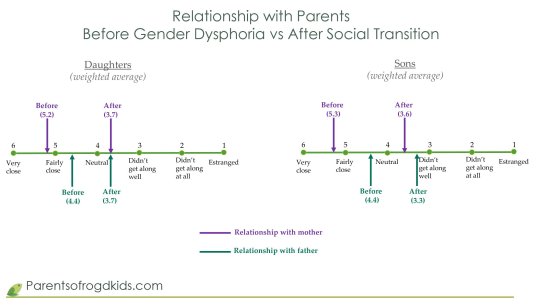
Conclusion
The results of the largest survey to date on gender dysphoric adolescents support Dr. Littman’s ROGD hypothesis. These youth are most likely using “gender dysphoria” to describe general feelings of dysphoria that they have no other name for, and do not understand. Transitioning will not help them. It can only cause irreversible harm and make things much worse.
Sweden, Norway, Finland, the UK and some States are backing away from the gender affirmative model, citing the lack of evidence and amid the growing number of detransitioners, many of whom are launching lawsuits against the gender specialists who harmed them. (See Ritchie Herron and Keira Bell, Michelle Zacchigna and Chloe Cole.)
Yet here in North America, the United States and Canadian Governments, the American Academy of Pediatrics and most other medical associations, are doubling down on the gender affirmative model.
If they truly want to “do no harm”, then they must follow Sweden’s lead and stop transitioning minors.
==
This should be good news. We have good reason to believe that distress can be resolved by treating the underlying cause, rather than through invasive and irreversible hormones, drugs and surgeries. How can this be a bad thing?
Because it's not about helping distress; if it was, they'd applaud the best treatment that causes the least harm. But it's about using anxious kids as pawns to remake society according to Queer Theory.
#Michael Sherman#Lisa Littman#Rapid Onset Gender Dysphoria#ROGD#social contagion#mental health#queer theory#gender ideology#medical transition#gender distress#gender dysphoria#mental health issues#mental health care#religion is a mental illness
94 notes
·
View notes
Text

be reminded that nothing is permanent, and we often need to go through something uncomfy in order to flourish. time heals everything!
#mental health care#mental health#healthy mind#healthy body#healthy soul#heal#positive#positive mindset#self love
10 notes
·
View notes
Text
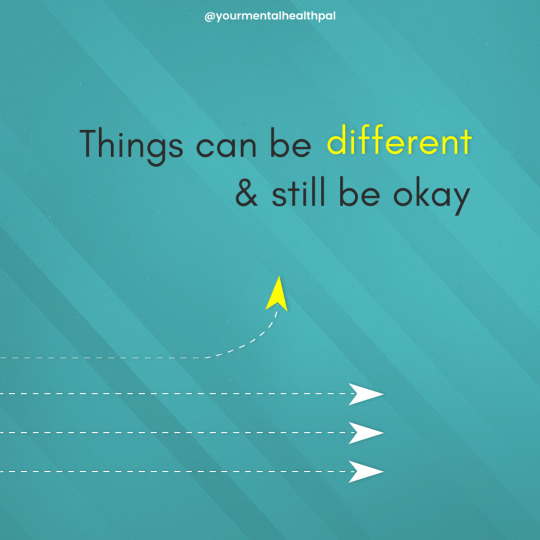
Embrace the beauty of change. 💫✨ Things can be different and still be okay.💖
#yourmentalhealthpal#embrace change#accepted#keep shining#positive thinking#positive vibes#life quotes#inspirational quotes#quoteoftheday#quotes#motivation quotes#changeling#mental health matters#mental health#growth mindset#personal growth#growth#change your thinking#change my mind#change your thoughts#positive thoughts#new beginnings#self growth#positive quotes#positivity#mental health care#self care ideas#self care#self help#ymhp
7 notes
·
View notes
Text
Dear madders
As artists, how can you snap from your daydreams and actually start to produce what you were daydreaming?
Because my biggest problem is my mind is full of creatives ideas but I keep "thinking" them instead of doing something practical
19 notes
·
View notes
Text




🧡Day 2 🩷
1st March 2024
40 minutes soundbath
10 minutes guided meditation
1 episode of therapy thoughts podcast
1 episode of lets talk about mental health podcast
Read 7 pages of Kaizen
15 minutes yoga
22 minutes exercise
30 minutes walking
5 positive Affirmations
I am a good leaner
I am hardworking
I am determined
I am optimistic
I am strong spirited
5 things to be grateful for
Good health
Good mind
Good food
Fresh air
Water
🧡🩷🧡🩷🧡🩷🧡🩷🧡🩷🧡🩷🧡🩷🧡🩷🧡
#acceptance#gratitude#growth#self discipline#self discovery#self improvement#self reflection#spiritual growth#spiritualguidance#wisdom#21 day challenge#mental health care#positive mental attitude
7 notes
·
View notes
Text
Update
Except for finishing up Ch. 44 of North Star (which will drop on Christmas day), I'm officially on my writing break. I'll still be around posting moodboards and random stuff for the next couple of weeks.
I probably won't be around much next month, though. But I have the Yuletide fics and other things scheduled for almost every day through Christmas. ❄️🎄🎁 (And one New Years Eve fic!🎉🥂)
Now it's time to relax 😌
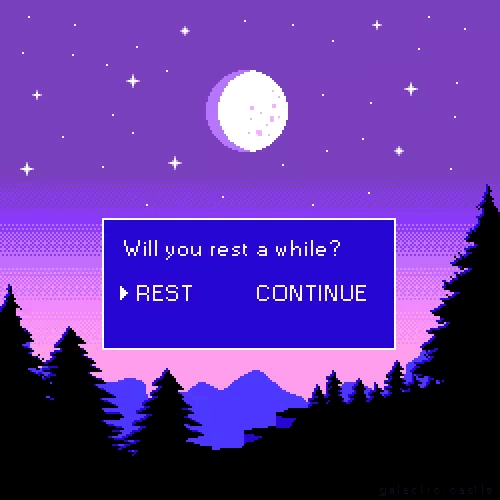
13 notes
·
View notes
Text
As it was a hard week for me and because of the events here and the stress around things in my private life, even though my husband had lied on purpose a maximum of 4 times in his life, we decided after a long conversation and my despair that I couldn't stand it in his mother's house a week under her observation. That I would stay in our house and just rest, and he would say that I was just sick. ✨
I know that lying and running away isn't the way, but this would be the first time I'm not travel there with him, and I feel like I need and deserve a break.
I've been thinking a lot about my mental health lately, and the thought of travel there filled me with fear and stress that I know I would feel the entire time I was there, unable to get any rest or relaxation in the way I would like. I hope we'll sleep at his grandma's later. Anyway, me staying means I'll probably spend my time writing!!!!!!! ✨
11 notes
·
View notes
Text
Being a therapist in therapy is so strange because I have the skills and knowledge to help others process trauma, learn to regulate emotions, etc. but I can’t help myself with those skills, I have to outsource that job to someone else who has those same skills.
#strange#weird#therapy#therapist#counseling#mental health counseling#mental health counselor#mental health care#trauma#mental health matters#counselor#leftblr#therapy is a human right
108 notes
·
View notes
Text
I fucking hate people who think they are fucking superheroes and think that they can help everyone but they don't even try to understand your situation and then in the end you're the one to blame because you refused their pointless help.
SERIOUSLY, can people fucking STOP doing this?! Pretend to be all-know-saviors when in reality they actually do the opposite.
I am speaking for myself here but i know a few other mentally ill people who fucking hate this shit.
If you truly want to help somebody DO NOT jump on recommendations and what not. If you want to TRULY help someone maybe first try to get to know the person and get to know their situation and try to understand it because for many of us explaining over and over and over again and not being understood is hell and we're too fucking tired of it. Also i might add that for autistic people explaining stuff can be super hard (aka me) so that should be taken into consideration.
Lastly, even if you had similar issues and struggles it DOESN'T MEAN that what works for you will work for everyone. Because, hello captain obvious, everyone is different, everyone reacts differently to different situations and each situation no matter how similar it might be is also different. That's why I'd never jump into advising anyone, at least not until i actually understand and know their situation and even then I'm very cautious about it because i know that i can do more damage than help.
Oh and i forgot to mention patience because many of these "superheroes" don't have it because they don't really care and they just want you to accept their advice no matter what.
Sorry not sorry for the rant but i can't deal with this shit anymore.
Sincerely, your local very mentally ill, very mentally fucked up autistic person.
#Mental illness#Mentally ill#depression#self hatred#suicidal#self harm#help#mental heath support#mental help#mental health care#autism#ptsd#cptsd#bpd#borderline personality disorder#raising awareness#personal
40 notes
·
View notes
Text

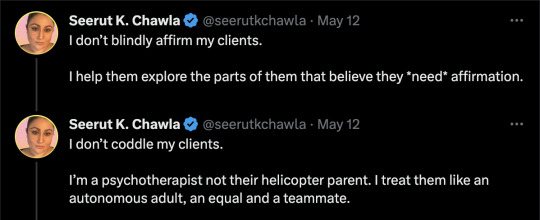
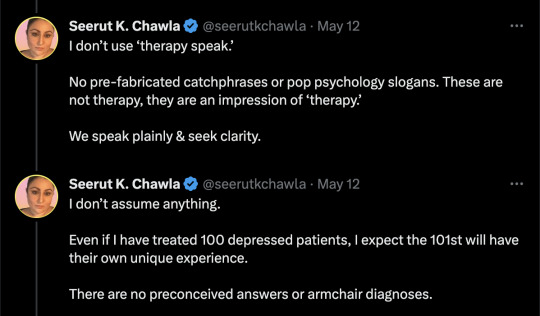

A therapist isn't your friend or your mother.
#Seerut Chawla#human psychology#psychology#validation#affirmation#coddling#therapy#mental health#mental health care#religion is a mental illness
57 notes
·
View notes
Text

this post serves as a reminder that you are able, and moreso allowed, to rise above the things you find scary in this world.
10 notes
·
View notes
Text

Embrace kindness. Nurture your soul. Cherish your emotions. Remember, self-care starts with being gentle with your feelings. 🌸
#yourmentalhealthpal#selfcare#self love#self compassion#be kind to yourself#be kind to your mind#gentle reminder#feelings#self care#self improvement#be positive#mental health care#emotional health#accept yourself#quoteoftheday#quotes#life quotes#ymhp#be gentle with yourself#self help#emotions#positive thoughts#positive thinking#positive quotes#gentle life#reminder to self#self reminder#self respect#note to self#reminder
6 notes
·
View notes